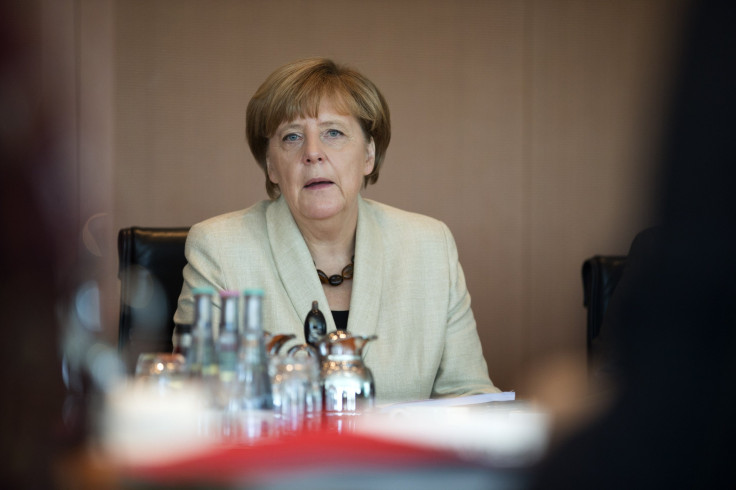German Conservatives Want To Relax Minimum Wage For Refugees; Poll Shows Support For CDU Slips To 1-Year Low

Senior officials in German Chancellor Angela Merkel’s Christian Democratic Union (CDU) called for a relaxation in the country's new minimum wage law in relation to refugees, arguing that those with minimal qualifications would struggle to find work at the 8.50 euro ($9.60) hourly rate.
Deputy Finance Minister Jens Spahn, a senior CDU member, and Reiner Haseloff, conservative premier of the state of Saxony-Anhalt, called for an exception to the minimum wage law -- which came into effect in January -- in comments printed in German daily Die Welt.
"For entry level or training positions the minimum wage should not apply," Haseloff told the newspaper, cited by Reuters on Tuesday.
Spahn said that hundreds of thousands of refugees trying to secure jobs in Germany would be unlikely to succeed unless exceptions were made, especially in the services sector. "Industry must offer internships, training and entry-level positions to the many young people who, as refugees, have the right to stay," Spahn said.
The party's decision comes at a time when support for the CDU has slipped to a one-year low of 38.5 percent amid voters' concerns over the ongoing refugee crisis, according to a poll Tuesday.
The INSA poll showed a one percentage point fall in approval for the conservatives from a week ago. The left-wing Social Democrats (SPD), who share power with the CDU, were also down one point at 23.5 percent.
"The refugee crisis is causing problems above all for the conservative camp and the grand coalition is weaker than ever," INSA chief Hermann Binkert told Bild daily, according to Reuters.
Merkel has drawn fire from conservatives for her strong policy stance of accepting refugees and calling on other European Union nations to do so, which they say encourages asylum-seekers to enter Germany. The country is struggling to cope with an estimated 800,000 refugees and migrants who are expected to reach this year.
The Christian Social Union (CSU), the Bavarian sister party to Merkel’s CDU, earlier this month called her decision to allow unregistered refugees into the country an "unparalleled historical mistake."
Other European countries have also blamed Germany for its overtly welcoming attitude toward refugees. “The current biggest problem of solving migration is an inconsistent policy of Germany,” Czech Interior Minister Milan Chovanec reportedly said earlier this month.
Meanwhile, latest statistics from the United Nations Refugee Agency show that over 500,000 refugees and migrants crossed the Mediterranean in 2015, of whom 2,980 are dead or missing.
© Copyright IBTimes 2024. All rights reserved.





















